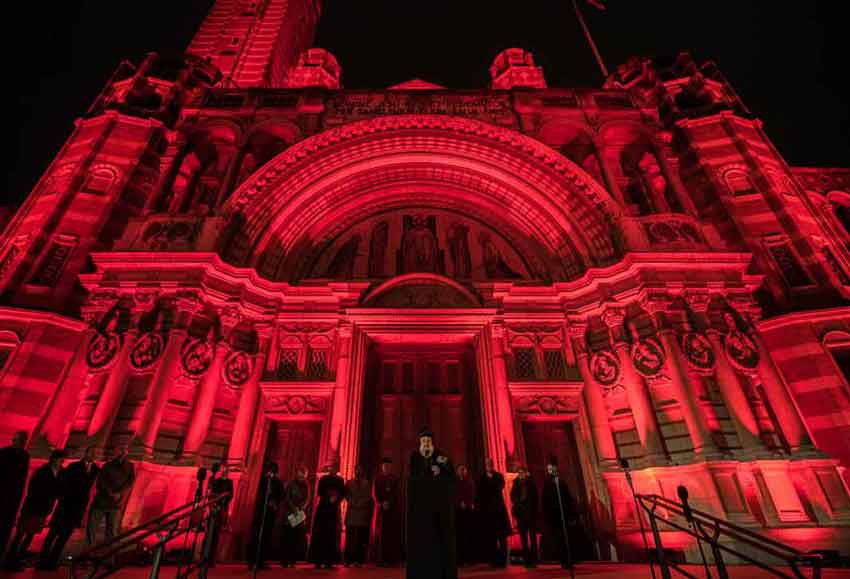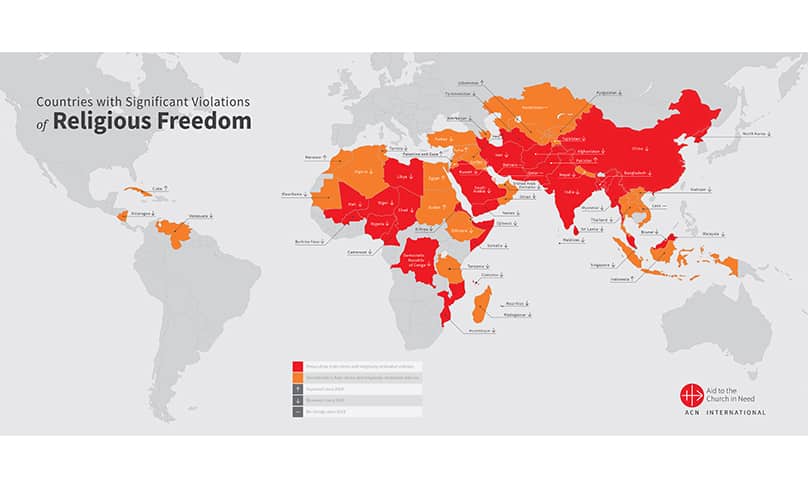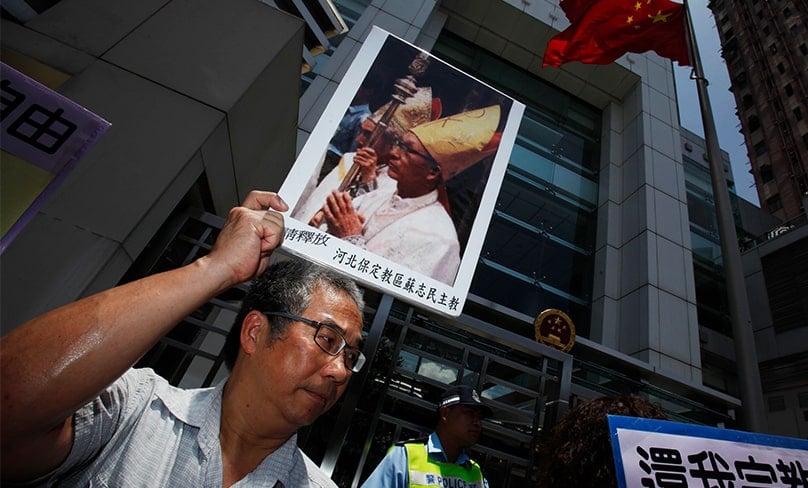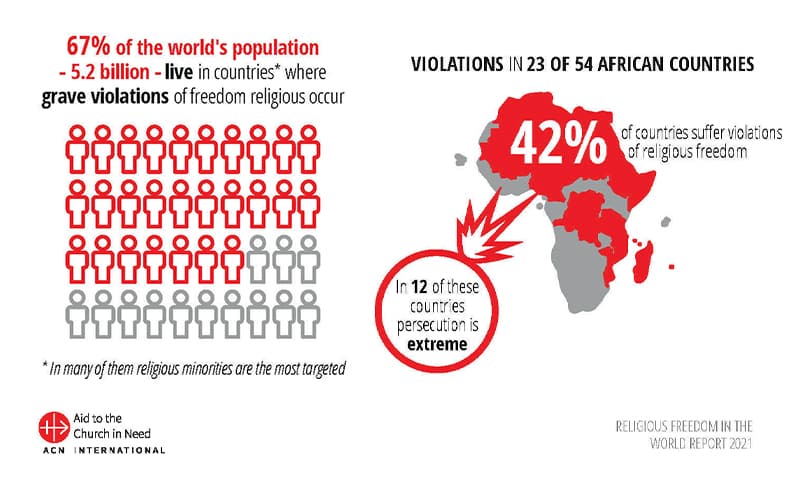
Bishop James Su Zhimin of Baoding in Hebei province, China, was last seen in 2003 – and by accident.
He was discovered by his family in a chance meeting at a Baoding hospital, after which he disappeared for good.
Bishop Su had been arrested six years earlier, during a crackdown on worship at the Donglu Marian Shrine, the site of Marian apparitions in 1900.
“No regime in history has been more successful in making George Orwell’s dystopian novel 1984 a reality than the People’s Republic of China.”
Before his disappearance in 1997 Bishop Su had spent two decades in and out of gaol and labour camps.
US Congressman Chris Smith, who met Bishop Su in 1994 and chaired a US government hearing into his whereabouts last year, described him as a man of “extraordinary gentleness, strength, courage and a peace that surpassed all understanding”.
Su is feared dead; Smith calls him “either a living saint or felled martyr”.

Bishop Su is one of many such cases in China, despite the 2018 provisional agreement between the Holy See and Chinese government.
And he is one of billions around the world who live in regimes under which religious persecution is intensifying, according to the 2021 religious freedom report from Aid to the Church in Need.
Two thirds of the world’s population live in countries where religious freedoms are routinely violated, 3.9 billion of which live in conditions of active persecution – including 12 African countries and two Asian countries in which religiously-motivated genocides are currently under investigation, China and Myanmar.
“On account of generations of poverty, corruption, pre-existing intercommunal violence between herders and farmers over land rights … this area has become a breeding ground for marginalised and frustrated young men.”
Transnational jihadist networks, repressive surveillance networks, religious nationalism and the COVID-19 pandemic have degraded religious freedoms in almost all countries where discrimination routinely occurs.
China is singled out for particular criticism, with the report claiming “No regime in history has been more successful in making George Orwell’s dystopian novel 1984 a reality than the People’s Republic of China.”
“Indeed, the apparatus of repression constructed by the Chinese Communist Party (CCP) in recent years is so finetuned, pervasive, and technologically sophisticated that it makes ‘Big Brother’ appear amateurish.”

Christian churches of all denominations continue to face discrimination but worse still is the ongoing persecution of Uyghurs in Xinjiang province, “where the atrocities have reached such a scale that a growing number of experts describe them as genocide”.
Across Africa religious violence is on the rise, in part because of “a crescent of jihadist violence … from Mali to Mozambique”.
A contributor to the report, Mark von Riedemann, writes that African nations are particularly at risk of a growth in extremist Islam because of demographic and economic factors.
“Bucking the global trend is Australia’s nearest neighbour and the world’s most populous Muslim nation, Indonesia, where the large Islamic civil society movement Nahdlatul Ulama continues to play an important democratising and reforming role.”
“On account of generations of poverty, corruption, pre-existing intercommunal violence between herders and farmers over land rights (exacerbated by the consequences of climate change) and weak state structures, this area has become a breeding ground for marginalised and frustrated young men,” von Riedemann writes.
The Holy Father, Pope Francis, has also spoken out against “polite persecution … disguised as culture, disguised as modernity, disguised as progress”.
The report notes that in many developed countries the broadening of “equality” or discrimination legislation can be a kind of “polite persecution” because it penalises “the meaningful exercise of the fundamental right to religious freedom and to freedom of expression”.

Australia saw “no significant new or increased governmental restrictions on religious freedom during the period under review, according to Aid to the Church in Need.
It singled out the cases of Cardinal George Pell and rugby player Israel Folau as two notable recent incidents, as well as a number of hate crimes against Jewish and Islamic Australians.
Bucking the global trend is Australia’s nearest neighbour and the world’s most populous Muslim nation, Indonesia, where the large Islamic civil society movement Nahdlatul Ulama continues to play an important democratising and reforming role.
“On 24 November Aid to the Church in Need’s “Red Wednesday” campaign will see cathedrals and churches around the world lit red to raise awareness for victims of religious persecution.”
Owing to a 2017 Constitutional Court decision that gave state recognition to followers of local native faiths, Indonesia is one of a few countries globally in which religious freedoms have improved – a rare good news story.
On 24 November Aid to the Church in Need’s “Red Wednesday” campaign will see cathedrals and churches around the world lit red to raise awareness for victims of religious persecution.
St Mary’s Cathedral will be lit up following Mass at 5:30pm.
